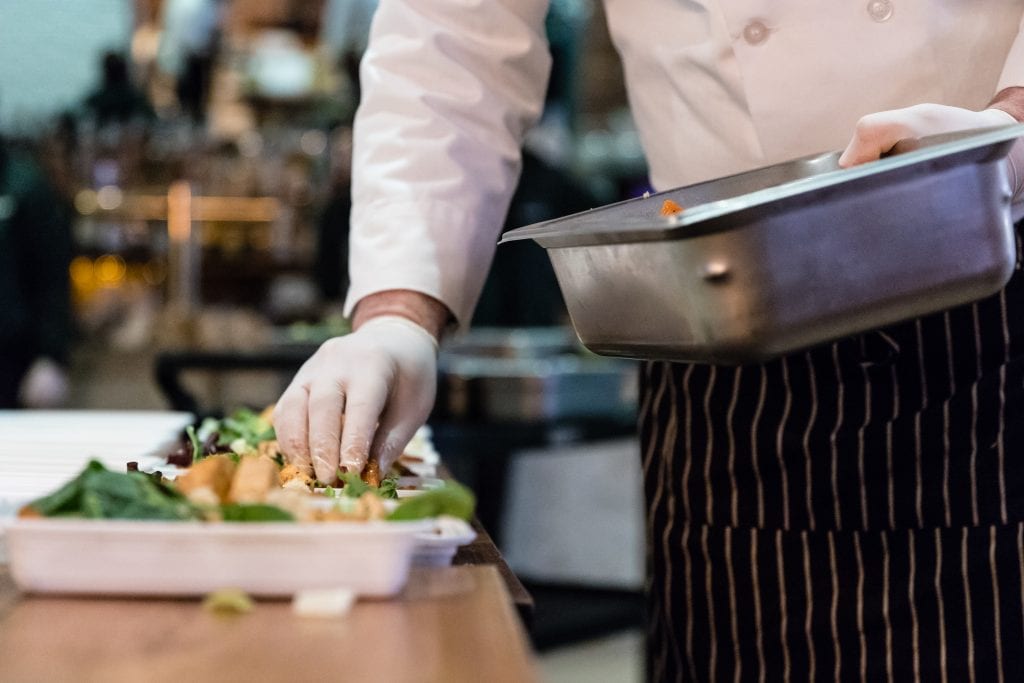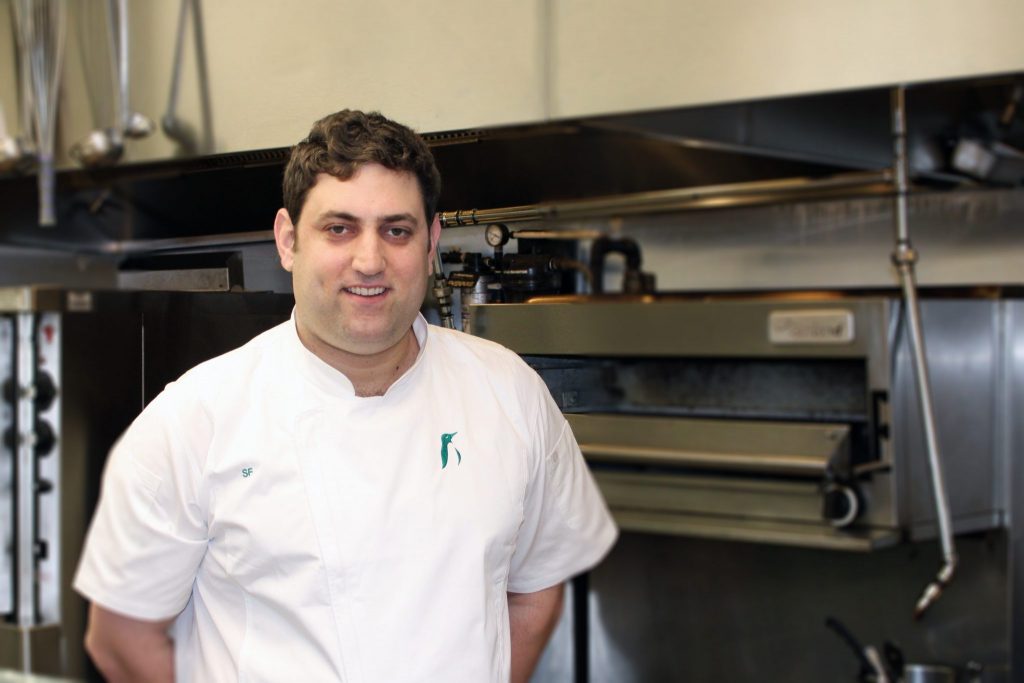Skift Take
The hotel kitchen is the latest spot for industry disruption. Sam Feigeles plays a key role in reshaping the future of the hotel food and beverage experience.
 Every month Skift will profile someone working in the quirkiest, most incredible and surprising jobs in global travel. Skift's relentless curiosity about our industries extends to every corner of the labor market. Who knew jobs like this even existed?
Every month Skift will profile someone working in the quirkiest, most incredible and surprising jobs in global travel. Skift's relentless curiosity about our industries extends to every corner of the labor market. Who knew jobs like this even existed?
Ordering hotel room service these days doesn’t necessarily mean calling downstairs. You may find yourself ordering from a kitchen of a competing hotel that just happens to be the dining hub for surrounding properties.
Sam Feigeles makes sure the process runs without a hitch and you get your meal fast and fresh.
“My job is about thinking how to serve anyone who wants to eat at hotels running at 100 percent occupancy,” said Feigeles, the vice president of food and beverage at hotel ghost kitchen platform Butler Hospitality. “Every day is different, and every day is an opportunity to refine our product, which I think will only benefit us in the future.”
New York-based Butler Hospitality is among a growing number of ghost kitchen providers to accelerate growth during the pandemic. Brand standards dictate full-service hotels have restaurants, which often operate at a loss and sometimes limited hours to prevent unnecessary financial bleeding. SBE founder Sam Nazarian’s C3 is another ghost kitchen company aiming to boost profits at hotels through revenue shares at their underutilized kitchens.
Butler is unique for focusing exclusively on hotels for customers. The company leases out a hotel restaurant and runs it on behalf of the hotel owner, but it also uses the space as a delivery hub to nearby hotels that don’t have their own kitchens. It also shares a percentage of sales with the hotel where it operates.
The idea has taken off, as Butler serves 40,000 hotel rooms in New York, Chicago, Miami, and Washington, D.C. The company plans to serve more than 200,000 rooms from 50 kitchens by the beginning of next year. Butler handles all the kitchen staffing and operations.
“We’re controlling the experience from a kitchen that we rent,” Feigeles said. “Having our own bikers and our own delivery people who take the food to the rooms means I know exactly how fast it takes them to deliver food from our window, so we can talk to them how fast or slow they’re going and modify transportation.”
The Road to the Kitchen
Feigeles’s winding path through the restaurant industry is what led him to Butler. He may have started a career in finance, but food was his true passion.
“It’s important to understand all aspects of food delivery, which has gotten me to my job today,” he said. “I found that I really just wanted to work in finance to have the opportunity to own a restaurant. I eventually took a step back and realized I never did anything on Wall Street without doing research first, so why would I think I could run a restaurant without first doing research?”
He started washing dishes at night for free at a restaurant in New York City before moving up to a line chef position. That eventually led to a change of careers after he enrolled at the Culinary Institute of America. Feigeles worked in catering before starting at Butler in late 2018 as an executive chef.

Butler Hospitality chefs preparing food for delivery at the DoubleTree in Manhattan (Credit: Butler Hospitality).
Butler appealed to the young chef, as its ghost kitchens weren’t limited in service to the number of seats in the main restaurant. Instead, it depended on the whims of neighboring hotel guests. The technology component behind the ordering platform enables the team to get a better sense of how to curate future menus.
“What struck me is we have a defined customer that is the hotel guest. You can track their habits and what they like. You can even have a recurring customer in different markets and serve them similar food without changing many of the components,” Feigeles said. “From being able to have different customers and access points, you’re able to do so many different things you can’t do at a single restaurant or catering facility.”
A Typical Day
A Butler kitchen usually operates from 6:30 in the morning until 11 at night, so that means working hours are long and grueling for the person in charge of making sure operations go smoothly.
One kitchen was serving as many as 3,000 people in a day during the pandemic, Feigeles said.
The company first bases a hotel client’s menu around its brand standards, but Butler will then try to incorporate local flavors depending on the market. The first order of business each morning is making sure food suppliers are arriving on-time to each kitchen and with the right local ingredients: bagels in New York City, king snapper in Miami, and so on.
After making sure the purveyors dropped everything off correctly, Feigeles moves onto things like meetings about future expansion and making sure the right equipment is ordered for a new kitchen. There are then tastings with the chefs or cooking staff about new menu items. Like any restaurant, Butler has an evening rush before closing out the day with night-time checklists.
“For me, I feel like it’s a very interesting job because I don’t have a typical day where I have to look through a calendar,” Feigeles said. “Everything is always different.”
Have a confidential tip for Skift? Get in touch
Tags: at your service, coronavirus, coronavirus recovery
Photo credit: Sam Feigeles (pictured), vice president of food and beverage at hotel ghost kitchen platform Butler Hospitality, makes sure operations succeed at these spaces and the hotels depending on them. Butler Hospitality
